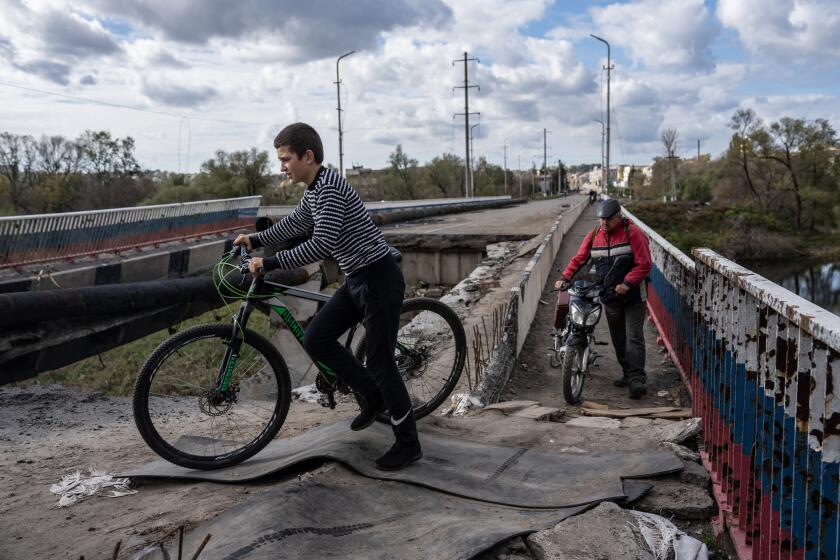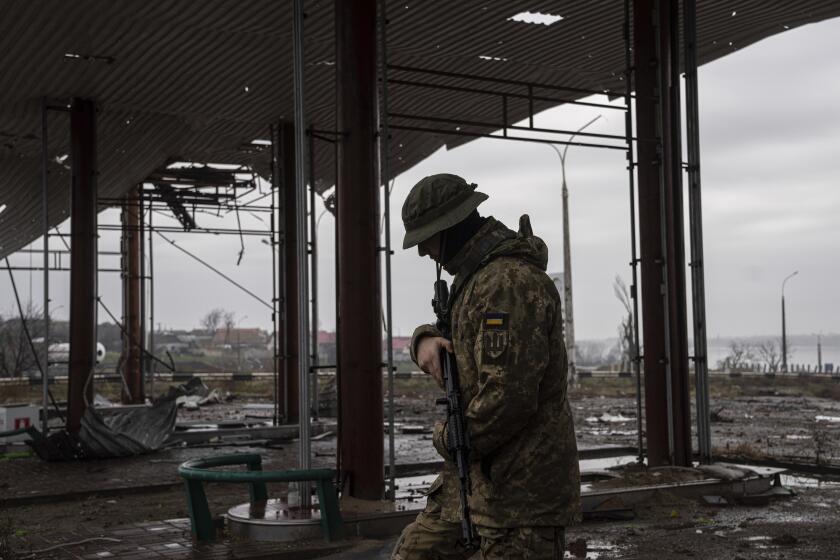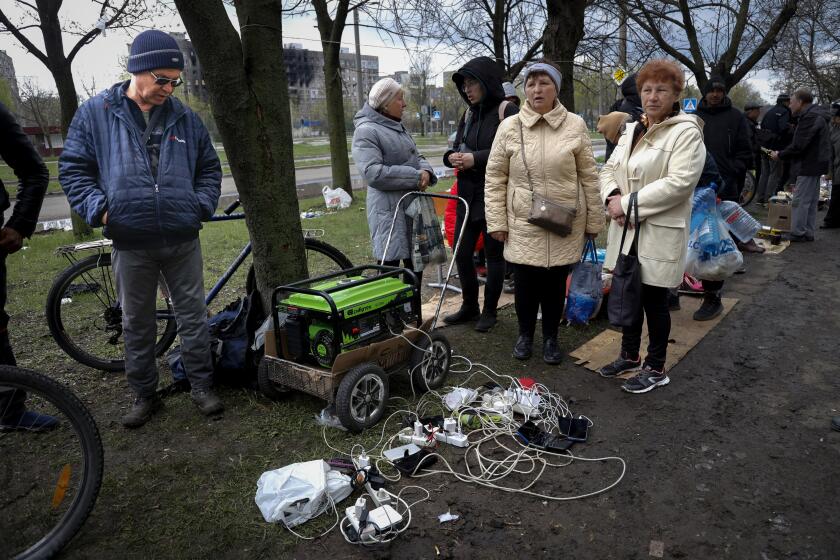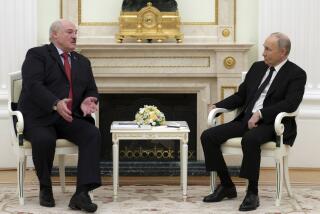Amid Russian setbacks in Ukraine, Putin ditches his annual news conference
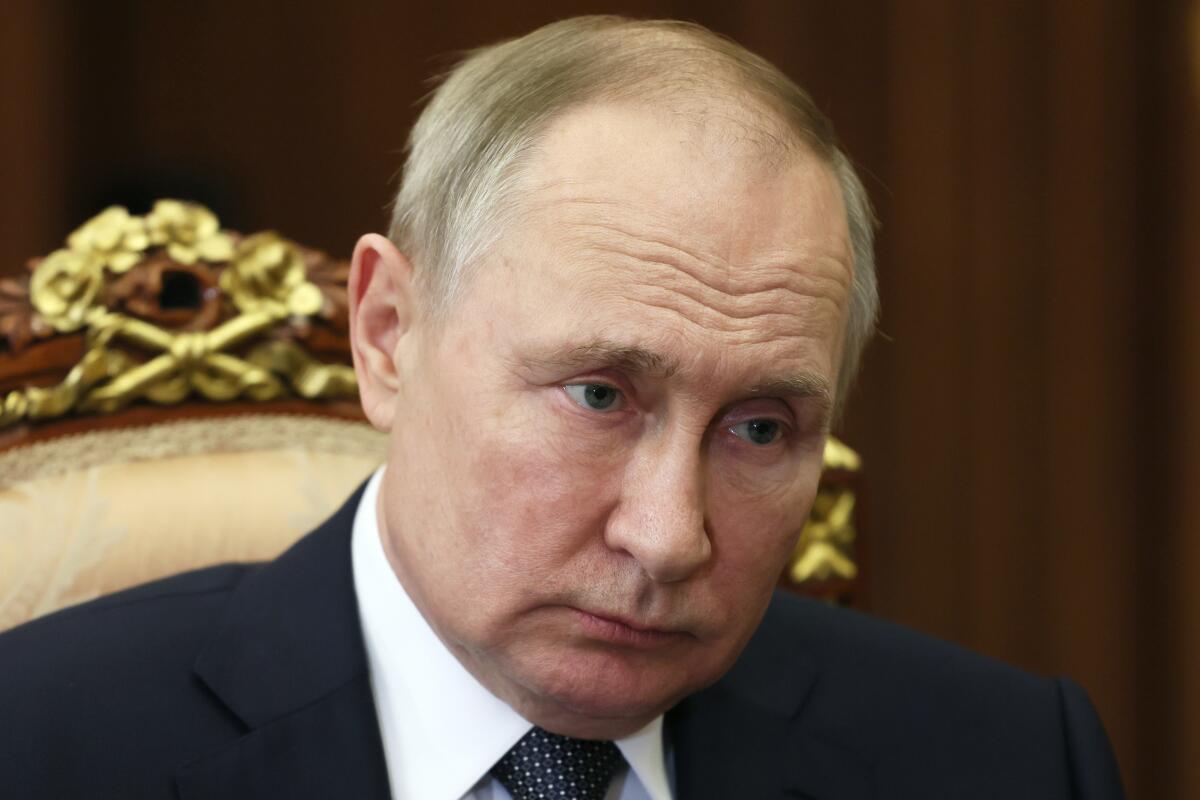
Russian President Vladimir Putin will not be holding his annual year-end marathon news conference, a break in long-held tradition that observers attribute to the Kremlin’s uneasiness over a string of battlefield setbacks in its war on Ukraine.
Kremlin spokesman Dmitry Peskov confirmed Monday that Putin would be skipping the annual news conference for the first time in 10 years. He didn’t give a reason, but many commentators ascribed it to Putin’s reluctance to face unpleasant questions about what he calls Russia’s “special military operation” in Ukraine.
The annual news conference has been used by the Kremlin to polish Putin’s image. The tightly stage-managed program, televised live, lasted up to 4½ hours and featured Putin talking about a wide variety of domestic and foreign policy issues.
Political analyst Abbas Gallyamov said in a video commentary that Putin canceled the annual news conference because “he has nothing to say from the point of view of strategy.”
In a commentary on Twitter, the British Defense Ministry said: “The press conference has become a significant fixture in Putin’s calendar of public engagement and has frequently been used as an opportunity to demonstrate the supposed integrity of Putin.
“Although questions are almost certainly usually vetted in advance, the cancellation is likely due to increasing concerns about the prevalence of anti-war feeling in Russia. Kremlin officials are almost certainly extremely sensitive about the possibility that any event attended by Putin could be hijacked by unsanctioned discussion about the ‘special military operation.’”
A Ukrainian mayor surrendered his city without a fight, but Russian forces still left Kupiansk tortured and destroyed.
Putin also canceled another annual fixture, a televised call-in show on which he takes questions from the public to nurture his father-of-the-nation image.
And he has not delivered the televised state-of-the-nation address to parliament that he is obliged by the Russian Constitution to give each year. The Kremlin hasn’t set a date for the address.
Putin ordered the invasion of Ukraine on Feb. 24, saying that its aim was to “demilitarize” and “denazify” the country and citing the North Atlantic Treaty Organization’s refusal to offer Russia guarantees that Ukraine wouldn’t be invited to join the alliance. Ukraine and much of the world have denounced the Russian attack on its neighbor as an unprovoked act of aggression.
Putin and his officials hoped to rout the Ukrainian military in a few days, but a fierce Ukrainian resistance quickly derailed those plans. After a botched attempt to quickly capture the Ukrainian capital, Russian troops pulled back from areas around Kyiv in March.
The U.S. has refused to give Ukraine weapons that could be used to attack Russian territory. But Russia hasn’t hesitated to attack Ukrainian civilians.
In September, Ukraine won back large swaths of land in the northeastern Kharkiv region, and last month it reclaimed control of the strategic southern port city of Kherson.
A mobilization of 300,000 Russian reservists that Putin ordered in September so far has failed to reverse the Kremlin’s battlefield fortunes. The mobilization order has prompted hundreds of thousands of Russians to flee abroad to avoid recruitment, and those who have been called up reported glaring shortages of key equipment and supplies.
In a rare acknowledgment last week that the campaign in Ukraine was taking longer than he anticipated, Putin admitted that wrapping up his special military operation could be a “lengthy process.” At the same time, he continued to claim that the campaign was going according to plan and would achieve its goals.
The Kremlin has muzzled any criticism of its action in Ukraine from the liberal antiwar camp, shutting down news outlets and criminalizing the spread of any information that departs from the official view. But it has faced increasingly vocal criticism from Russian hard-liners who have denounced the president as weak and indecisive and called for ramping up strikes on Ukraine.
Millions of Ukrainians are without regular access to heat, electricity and water in frigid temperatures because of Russia’s attacks on infrastructure.
Sergei Markov, a pro-Kremlin political analyst, said Putin’s decision to ditch the news conference and his failure so far to deliver the state of the nation address reflected hesitancy about the future course of action.
“Shall we forge ahead and defeat the enemy?” Markov wrote, reflecting hard-liners’ calls for widening attacks on Ukraine. “Or on the contrary, shall we prepare for a difficult but necessary compromise?”
More to Read
Sign up for Essential California
The most important California stories and recommendations in your inbox every morning.
You may occasionally receive promotional content from the Los Angeles Times.
